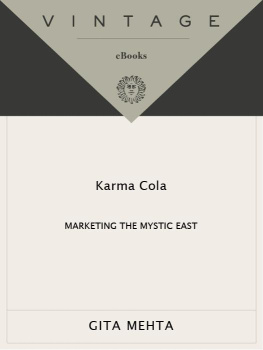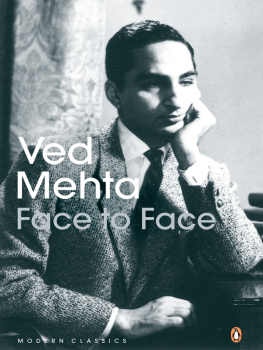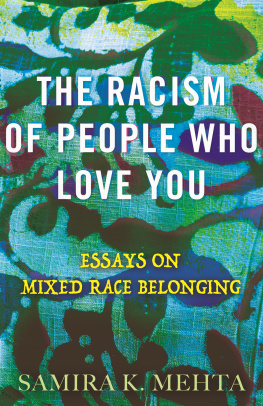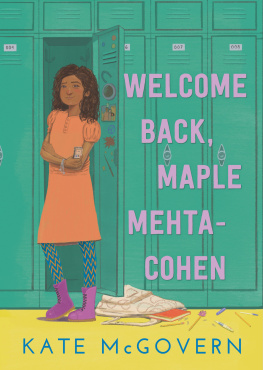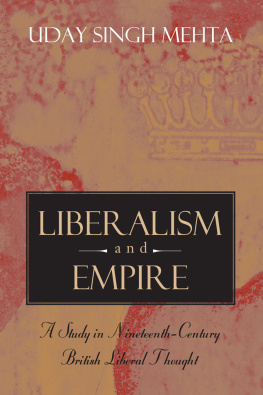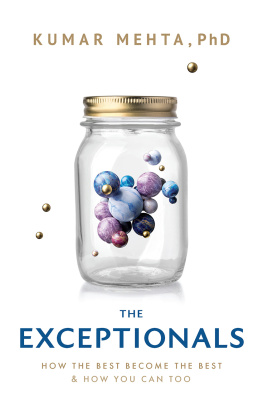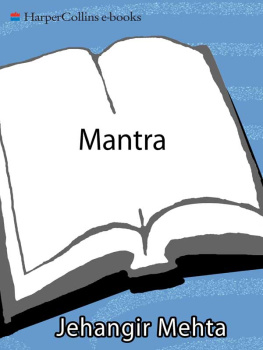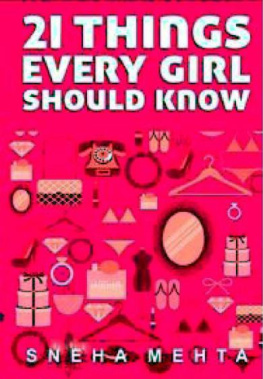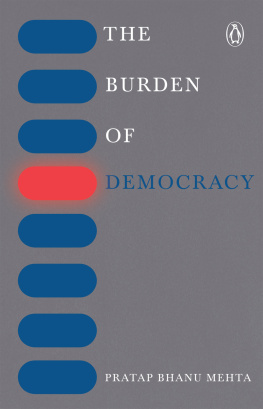Gita Mehta - A River Sutra
Here you can read online Gita Mehta - A River Sutra full text of the book (entire story) in english for free. Download pdf and epub, get meaning, cover and reviews about this ebook. year: 1994, publisher: Vintage, genre: Detective and thriller. Description of the work, (preface) as well as reviews are available. Best literature library LitArk.com created for fans of good reading and offers a wide selection of genres:
Romance novel
Science fiction
Adventure
Detective
Science
History
Home and family
Prose
Art
Politics
Computer
Non-fiction
Religion
Business
Children
Humor
Choose a favorite category and find really read worthwhile books. Enjoy immersion in the world of imagination, feel the emotions of the characters or learn something new for yourself, make an fascinating discovery.
- Book:A River Sutra
- Author:
- Publisher:Vintage
- Genre:
- Year:1994
- Rating:3 / 5
- Favourites:Add to favourites
- Your mark:
- 60
- 1
- 2
- 3
- 4
- 5
A River Sutra: summary, description and annotation
We offer to read an annotation, description, summary or preface (depends on what the author of the book "A River Sutra" wrote himself). If you haven't found the necessary information about the book — write in the comments, we will try to find it.
A River Sutra — read online for free the complete book (whole text) full work
Below is the text of the book, divided by pages. System saving the place of the last page read, allows you to conveniently read the book "A River Sutra" online for free, without having to search again every time where you left off. Put a bookmark, and you can go to the page where you finished reading at any time.
Font size:
Interval:
Bookmark:
GIT A MEHT A
Gita Mehta is the author of two previous books, Karma Cola and Raj. She has written, produced, and directed a number of documentaries for American, British, and European television companies and has written for several publications. She is married, with one son, and divides her time among India, England, and the United States.
VINTAG E INTERNATIONA L Vintage BooksA Division of Random House, Inc.
New York Acclaim for GIT A MEHTA' s
"With the terrifying beauty and power of devotion...Mehta gives us the jungle of India...timeless...seductive and convincing.... [A River Sutra] is a book of extraordinary effects, piling one on another in a slowed timescape."
Newsday"Tales worthy of Chaucer and the Upanishads...the book, written with a beautiful ease and understatement, is an homage to the spoken word."
Mirabella"In her enchanting new novel, Gita Mehta comes close to doing for the Narmada River what Mark Twain did for the Mississippi.... Mehta's prose is as hypnotically evocative as it is economical. Her characters defy stereotyping and are instantly engaging, sometimes surprising. A River Sutra runs swift, clear and warm from beginning to end."
Cleveland Plain Dealer"A lyrical series of interlocking stories that transport the reader to a contemporary India that is also the living present of myth. With precise, transparent language, the author [tells] stories weighted with implacable truth. She conveys a world that is spiritual, foreign, and entirely accessible.... Gita Mehta has used [the imaginative faculties] sublimely."
Vanity Fair"The Arabian Nights is alive and well in a modern-day Scheherazade named Gita Mehta and a book called A River Sutra....'Mehta's delicate prose elaborates and polishes her stories...with the seductiveness of a flute."
Denver Post
The Government still pays my wages but I no longer think of myself as a bureaucrat. Bureaucrats belong too much to the world, and I have fulfilled my worldly obligations. I am now a vanaprasthi, someone who has retired to the forest to reflect.
Of course, I was forced to modify tradition, having spent my childhood in Bombay and my career as a civil servant working only in cities. Although my desire to withdraw from the world grew more urgent as I aged, I knew I was simply not equipped to wander into the jungle and become a forest hermit, surviving on fruit and roots.
Then shortly after my wife passed away I learned of a vacant post at a Government rest house situated on the Narmada River. I had often stayed in such rest houses while touring the countryside on official business. Over time I had even developed an affection for these lonely sanctuaries built by the Moghul emperors across the great expanse of India to shelter the traveler and the pilgrim, a practice wisely maintained by subsequent administrations.
But the bungalow's proximity to the Narmada River was its particular attraction. The river is among our holiest pilgrimage sites, worshipped as the daughter of the god Shiva. During a tour of the area I had been further intrigued to discover the criminal offense of attempted suicide is often ignored if the offender is trying to kill himself in the waters of the Narmada.
To the great surprise of my colleagues, I applied for the humble position of manager of the Narmada rest house. At first they tried to dissuade me, convinced that grief over my wife's death had led to my aberrant request. Senior bureaucrats, they argued, should apply for higher office. Finding me adamant, they finally recommended me for the post and then forgot me.
For several years now, thanks to the recommendations of my former colleagues, this rest house situated halfway up a hill of the Vindhya Range has been my forest retreat.
It is a double-storeyed building constructed from copper-colored local stone, the upper floor comprising three spacious and self-contained suites which overlook the gardens, the ground floor occupied by a dining room and drawing room opening onto a wide veranda. Happily, the interiors retain their original mosaic tiles, having escaped the attentions of a British administrator who plastered the outside walls at the turn of the century, giving the exterior of the bungalow with its pillared portico and balustraded steps an air more Victorian than Moghul.
To one side of the gardens, hidden by mango trees, is a small cottage in which I live. On the other side, the gardens lead to a stone terrace overlooking the Narmada, which flows seven hundred feet below.
Spanning a mile from bank to bank, the river has become the object of my reflections.
A great aid to my meditations is the beauty of our location. Across the sweep of water, I can see fertile fields stretching for miles and miles into the southern horizon until they meet the gray shadows of the Satpura Hills. On this riverbank towering bamboo thickets and trees overgrown with wild jasmine and lantana creepers cover the hillsides, suspending the bungalow in jungle so dense I cannot see the town of Rudra, only nineteen kilometers away, where my clerk, Mr. Chagla, lives.
Poor Mr. Chagla must bicycle for over an hour to reach us, but as we are without a telephone his daily return to town is vital for organizing our supplies and attending to other business. Rudra has the nearest post office, as well as a doctor who presides over a small hospital and a branch police station with four constables.
Below Rudra, visible from our terrace at the bend of the river, sprawls the temple complex of Mahadeo. At sunset I often sit on the terrace with our bungalow guests to watch the distant figures of the pilgrims silhouetted against the brilliant crimsons of the evening sky descending the stone steps that lead from Mahadeo's many temples to the river's edge. With twilight, the water at Mahadeo starts flickering with tiny flames as if catching fire from the hundreds of clay lamps being floated downstream for the evening devotions.
My day usually begins on this terrace. I have formed the habit of rising before dawn to sit here in the dark with my face turned toward the river's source, an underground spring that surfaces four hundred kilometers to the east.
In the silence of the ebbing night I sometimes think I can hear the river's heartbeat pulsing under the ground before she reveals herself at last to the anchorites of Shiva deep in meditation around the holy tank at Amarkantak. I imagine the ascetics sitting in the darkness like myself, their naked bodies smeared in ash, their matted hair wound on top of their heads in imitation of their Ascetic god, witnessing the river's birth as they chant:
Then streaks of pale light send clouds of noisy birds into the sky, evoking crowds of pilgrims swarming through Amarkantak's temples for the morning worship.
By the time the red ball of the sun appears over the hills, the activity I have been imagining at the river's source becomes the reality of the rest house with the appearance of our gardeners, our sweepers, and the milkman.
After issuing instructions to the early staff, I leave the bungalow by the northern gate for my morning walk. Almost immediately I enter the jungle. Under the great trees glistening with dew teak, peepul, silk cotton, mango, banyanthe mud path is still deserted, crossed only by bounding monkeys, leaping black buck, meandering wild boar as if the animals are glorying in their brief possession of the jungle. On my return in two hours I will be greeted on this path by sturdy tribal women from the nearby village of Vano collecting fuel for their cooking fires.
Our bungalow guards are hired from Vano village and enjoy a reputation for fierceness as descendants of the tribal races that held the Aryan invasion of India at bay for centuries in these hills. Indeed, the Vano village deity is a stone image of a half-woman with the full breasts of a fertility symbol but the torso of a coiled snake, because the tribals believe they once ruled a great snake kingdom until they were defeated by the gods of the Aryans. Saved from annihilation only by a divine personification of the Narmada River, the grateful tribals conferred on the river the gift of annulling the effects of snakebite, and I have often heard pilgrims who have never met a tribal reciting the invocation
Next pageFont size:
Interval:
Bookmark:
Similar books «A River Sutra»
Look at similar books to A River Sutra. We have selected literature similar in name and meaning in the hope of providing readers with more options to find new, interesting, not yet read works.
Discussion, reviews of the book A River Sutra and just readers' own opinions. Leave your comments, write what you think about the work, its meaning or the main characters. Specify what exactly you liked and what you didn't like, and why you think so.


